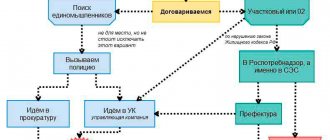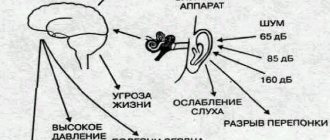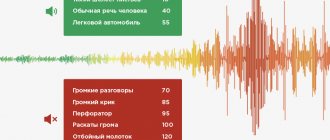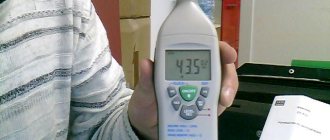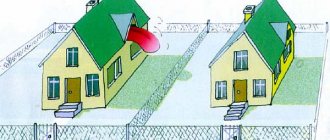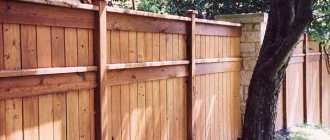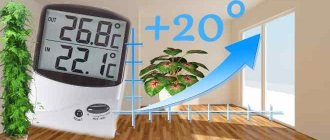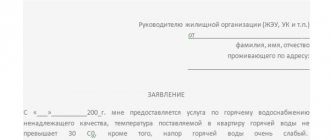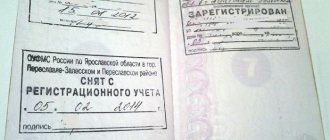In modern cities, noise pollution is a huge problem that every resident of an apartment building faces. Loud noises in an apartment can make life unbearable. The noise coming from neighboring apartments can seriously harm a person’s health, interfering with proper rest and sleep.
In order to avoid such a situation, it is important to know whether there are noise standards, where to go if neighbors violate the standards established by law, and how to correctly prove that the noise has exceeded the permissible level.
Methods for measuring noise in residential areas
How to measure the noise level in an apartment? There are several ways:
- Using specialized technical devices
A professional sound level meter is a device that allows you to measure sounds in decibels. The measurement is performed using a microphone, and the results are displayed on the device screen. Measurements are taken at several points and the average noise level is determined.
- Using computer programs
Modern technologies make it possible to measure noise coming from neighbors using programs installed on smartphones and tablets. Using a microphone, the device receives information about the noise level and performs an analysis.
An example of such programs is Sound Meter, Decibel 10th, Decibel Meter, etc.
- Call a specialist
Services for measuring noise levels in an apartment can be provided by:
- Forensic expert organizations, relying on a court ruling.
- Employees of Rospotrebnadzor and organizations accredited by Rospotrebnadzor to carry out this activity.
- Design organizations that are members of design and survey SROs.
The first thing to do is contact the organization with a statement, which will indicate the applicant’s details, address, the requirement to measure the noise level and its intended source.
To ensure that the procedure is carried out promptly, a Rospotrebnadzor employee can be called by phone.
The measurement procedure is carried out in several stages, and upon completion, a report is drawn up that reflects the results of the study.
How to maintain control at the workplace?
To measure noise, use an electronic device, which includes:
- microphone;
- amplifier;
- various sound filters.
For more accurate readings, measurements should be taken at several points in the room and at different levels. They measure parameters such as:
- number of decibels;
- duration and nature of noise exposure for workers.
Scheduled inspections by authorities are carried out every three years.
The danger of high-pitched sounds for humans
Very often the effect of loud sounds on the human body is underestimated. This is due to the fact that the consequences of such influences do not appear immediately, but after some time.
Under the influence of constant noise attacks, a person’s hearing decreases and their general physical condition worsens:
- labor productivity and efficiency sharply decrease;
- noise also has a negative impact on the ability to communicate and communicate;
- the quality of optical signal reception decreases;
- learning efficiency decreases;
- the emotional situation in the team worsens;
- noise also affects the rate of aging and an increase in the number of heart attacks;
- negatively affects the immune system and nervous system.
Very often, children growing up in areas with high noise pollution experience problems with concentration, the ability to think logically, read and speak.
Distance from the sound level meter to the human body. Availability of a tripod
According to clause 1.13 of the Methodological Instructions, the microphone of the sound level meter must be directed towards the main source of noise and removed at least 0.5 m from the person conducting the measurements.
It may follow from the noise measurement protocol that, for example, a noise and vibration analyzer “Assistant Total” and a metal tape measure were used. There is no reference to using a tripod in the protocol. That is, when taking measurements, the noise and vibration analyzer was in the expert’s hand (at least it’s difficult to assume otherwise).
Meanwhile, this circumstance also affects the values obtained during measurements.
For example, recognizing the noise measurement protocol as inadequate evidence, the court stated the following:
“..the reference to the fact that when measuring noise levels, the use of a tripod is not mandatory, since this is not provided for in the Methodological Instructions, is subject to rejection, because What is important is not the presence (absence) of a tripod during measurement, but the distance from the sound level meter to the body of the person taking the measurements, since acoustic waves reflected from the plane of the chest can overlap the microphone membrane of the sound level meter and thereby create additional sound pressure, distorting the measurement results.
In this case, the Office of Rospotrebnadzor for the Orenburg Region did not provide evidence that, in the absence of a tripod, the person taking noise measurements kept the distance of 0.5 m established by the Methodological Instructions.” (see Decision of the Orenburg Regional Court dated November 1, 2012 in case No. 12-165-2012).
What happens to hearing when exposed to noise?
Prolonged exposure to noise or high-pitched sounds can seriously damage a person’s hearing system, even to the point of rupturing the eardrums. As a result, hearing decreases, sometimes complete deafness occurs.
There are different noise levels . At 35–40 decibels, sleep is disturbed, at 70, the nervous system suffers, mental illness can appear, vision can deteriorate, and even the composition of the blood can change for the worse.
Constantly excessive background noise is fraught with increased irritability and fatigue.
There is also a deadly sound level - when the sound reaches 200 decibels a person dies.
Maximum permissible noise level in the room, the norm according to the law of the Russian Federation
The permissible noise level is established by law by the state. The legal framework for assessing noise levels includes:
- Federal Law No. 52 of March 30, 1999 “On the sanitary and epidemiological welfare of the population.”
- Sanitary standards SN 2.2.4/2.1.8.562-96 “Noise in workplaces, in residential and public buildings and in residential areas.”
It should be noted that in each subject of the Russian Federation there are also local laws on silence, which describe in detail the time frame of restrictions, as well as a system of fines for violating established norms.
Night hours have different durations and depend on the geographical and climatic characteristics of different regions of the Russian Federation and take into account established traditions.
The time frame for construction and repair work – the source of the loudest noise – is specified separately.
In addition, most regions have introduced a kind of “quiet hour” from 13:00 to 15:00 in order to protect children and the elderly from noise during the afternoon rest.
It is worth noting that many noises surrounding a person in ordinary life significantly exceed the norm.
For example, the noise of a moving elevator reaches 43 dB, a calm conversation – 63 dB, the noise of a vacuum cleaner – 80 dB.
It is impossible to avoid these everyday sounds, but they do not pose a danger when the impact on a person’s hearing is short-lived. Systematic noise that goes beyond the limits of norms poses a danger to human health.
Information on the regions of the Russian Federation regarding the time of noise can be studied at the link - Federal Law 52.
During the daytime
In accordance with established standards, the noise level in residential premises during the day should be at 40 dB. In this case, an excess of 15 dB is allowed, and thus the maximum permissible noise level during the day is 55 dB.
At night time
The permissible noise level at night is 45 dB. The following actions are not allowed at night:
- Turning on music devices and TVs at high volume.
- Stomping, loud singing, etc.
- Launch of pyrotechnic products.
- Rearrangement of furniture and repairs.
These restrictions are lifted in the event of force majeure, mass events or actions of emergency services.
○ Advice from a lawyer:
Construction noise coming from a neighboring apartment seriously affects a person’s life, interfering with normal rest. Therefore, you need to know where you can complain and what punishment awaits violations.
✔ Where should I contact regarding non-compliance with the law on silence?
There are several bodies that are vested with the appropriate powers to bring to justice violators of the silence law:
- Regardless of the nature of the noise, you should first contact the police by phone, and then submit a written statement, the consideration of which will be assigned to the local police officer. He has the right to draw up a protocol on an administrative offense.
- Management company, housing office, homeowners association. They are obliged to monitor the repair work, so they have the right to visit an apartment where the law on silence is not observed.
- The prosecutor's office oversees compliance with laws. Upon receipt of a written application, the prosecutor is obliged to conduct an investigation, as a result of which the violator will be held accountable.
- Rospotrebnadzor. This body is entrusted by the state with the obligation to take measures to protect consumer rights.
- Sanitary and epidemiological station. It has specialists and instruments that can professionally measure the noise produced during repair work.
What do sanitary standards for noise in a populated area include?
The concept of “sanitary noise standards” includes many factors:
- Frequency characteristics are measured.
- Duration and time of increased background noise.
- The nature of the noise.
- Other factors.
The basis of sanitary standards is a noise level that, with prolonged exposure to the human body, will not cause harm to the physical and emotional state.
Neighbor's air conditioner interferes with sleep, what should I do?
Air conditioning in an apartment building causes a lot of inconvenience to neighbors during the hot season.
As you know, windows are almost always open and the noise this equipment makes greatly disturbs night sleep. If its noise at night exceeds 60 dB, you should contact the housing inspection. The municipal commission must consider the appeal and determine the existence of an administrative violation, based on regulations at the regional level.
There is no need to respond to noisy neighbors in kind and, out of spite, play loud music, plow through walls and shout, and even more so use physical force. Such methods will place you among the ranks of offenders, which entails some responsibility.
How to measure noise in decibels in residential premises?
If noise in the apartment causes you inconvenience, you should try to eliminate the problem. The process should begin by measuring the noise level. You can do this either on your own or with the help of specialists.
The most popular method of measuring noise levels is with a sound level meter. However, remember that budget versions of devices do not give sufficiently accurate readings, and professional versions of devices are quite expensive - up to 300 thousand rubles.
Important! If you want to measure the noise level using a sound level meter, check it before use. This can be done with the help of a metrological service, which must give an opinion on the serviceability of the device and the accuracy of the measurements.
You can also measure background noise using a smartphone application; most of these programs are free and easy to find.
Important! Since the parameters of the microphone and the data processor are not consistent, the measurement accuracy may suffer.
The most accurate way to find out the noise level in an apartment is to contact specialists with professional equipment. Employees of Rospotrebnadzor or organizations authorized to carry out these actions will conduct a professional study and issue an official conclusion, which will display the results of the work.
What threatens neighbors or organizations that disturb the silence?
For violation of noise level requirements, the violator may be subject to administrative liability..
Employees of the authorized bodies draw up a protocol on the violation, and the culprit is fined in the amount of 100 to 1,000 rubles for individuals, and from 10,000 to 20,000 rubles for legal entities (for example, if a store or other firm).
Important : Local authorities can set their own fines for such an offense by issuing a local regulatory act.
The government authorities competent in this matter include:
- local police department;
- management company or housing and communal services servicing the house;
- sanitary-epidemiological station and Rospotrebnadzor;
- prosecutor's office (in case of inaction of the above authorities);
- judicial authority (last resort).
We recommend watching a video about administrative fines for noise at inappropriate hours:
https://youtu.be/2331LhyXTOw
Where to contact?
The procedure for residents suffering from noisy neighbors is as follows:
- Talk. Perhaps the neighbors are unaware that they are causing inconvenience to someone, and a peaceful conversation will help resolve the issue.
- Call the police.
- Application given to the district police officer. The apartment will be registered with them and checked periodically. This will help pacify troublemakers.
- Application to court. In this case, violators will be subject to a substantial fine, and in the case of renting, even eviction from the apartment is possible for constantly disturbing the peace of the people around them.
If you experience discomfort from excessive noise in the apartment, you should submit an application to Rospotrebnadzor, the sanitary-epidemiological service or an independent organization licensed to carry out this activity.
Specialists who arrive on such a request have with them professional equipment that allows them to determine the noise level with high accuracy.
Measurements are made in accordance with special technologies that involve measuring noise at different points in the room, drawing the average value and comparing it with acceptable standards.
The measurement protocol ultimately indicates the frequency and dynamic noise levels, and sometimes the effectiveness of the existing sound insulation.
If you decide to use the help of Rospotrebnadzor specialists, you can be sure:
- noise level measurement will be carried out in accordance with GOSTs and standards;
- equipment for measuring work undergoes regular checks and is in good working order;
- the price for measuring the noise level is not overpriced, and varies within 500 rubles per measurement at one point in the room. The total cost of visiting Rospotrebnadzor specialists during the day will not exceed 5 thousand rubles, at night – 10,000.
You can use the services of private companies; in this case, upon completion of the examination, you will also receive a document containing a complete list of calculations and recommendations.
Kinds
According to Rospotrebnadzor, noise is divided depending on the impact into the following groups:
- According to spectral analysis:
- Broadband noise. The spectrum flows continuously and is usually more than one octave wide.
- Tonal noise. The sound distribution is not uniform and predominates in one octave.
- By duration:
- Constant noise.
- Intermittent noise.
- Non-constant noises are also divided into:
- Fluctuating, periodic changes in level.
- Intermittent, the level changes abruptly.
- Pulse, formed due to several types of noise and with different durations.
Noise sources:
- Technical: operation of all office equipment. This can be eliminated by replacing them with better and less noisy ones, or by reducing the time they are used.
- Human: created by the employees themselves, loud conversations, heated discussion of topics, music, etc. They are eliminated by sanctioning the offender. From routine warnings and administrative tasks to monetary penalties.
- External: street noise or from neighboring rooms. Eliminated mainly due to good sound insulation.
Why is expertise needed?
An acoustic examination, officially carried out by specialists, is needed in order to obtain confirmation of a violation of the norms of the legislation of the Russian Federation.
The examination carried out by Rospotrebnadzor is appropriate in situations where the case is being examined in court. Measurements taken on your own will not be suitable in this case - the court needs expert opinions from specialists.
Important! In a situation where an acoustic examination is carried out by court decision, all costs after the hearing are borne by the losing party.
The paper documenting the violation, issued by Rospotrebnadzor specialists, will become your main evidence in court and will help calm down excessively noisy neighbors.
Attention! There are circumstances in which it does not make sense to carry out an examination even in cases where the norms are clearly violated. There are reasons that cannot be controlled, for example, a child’s crying.
What actions are prohibited
Moscow Law on Silence No. 42 of 2002 prohibits at night:
- use televisions, tape recorders, stereos and other devices that reproduce loud sound;
- sing, play instruments, and perform other similar actions that disturb peace;
- use car alarms;
- launch firecrackers, fireworks and other pyrotechnic products;
- repair, build, load and unload.
The list is open. This means that any action that disturbs the peace of citizens and the established silence is prohibited by law.
Article on the topic: “How to make an anonymous call to the police: procedure.”
